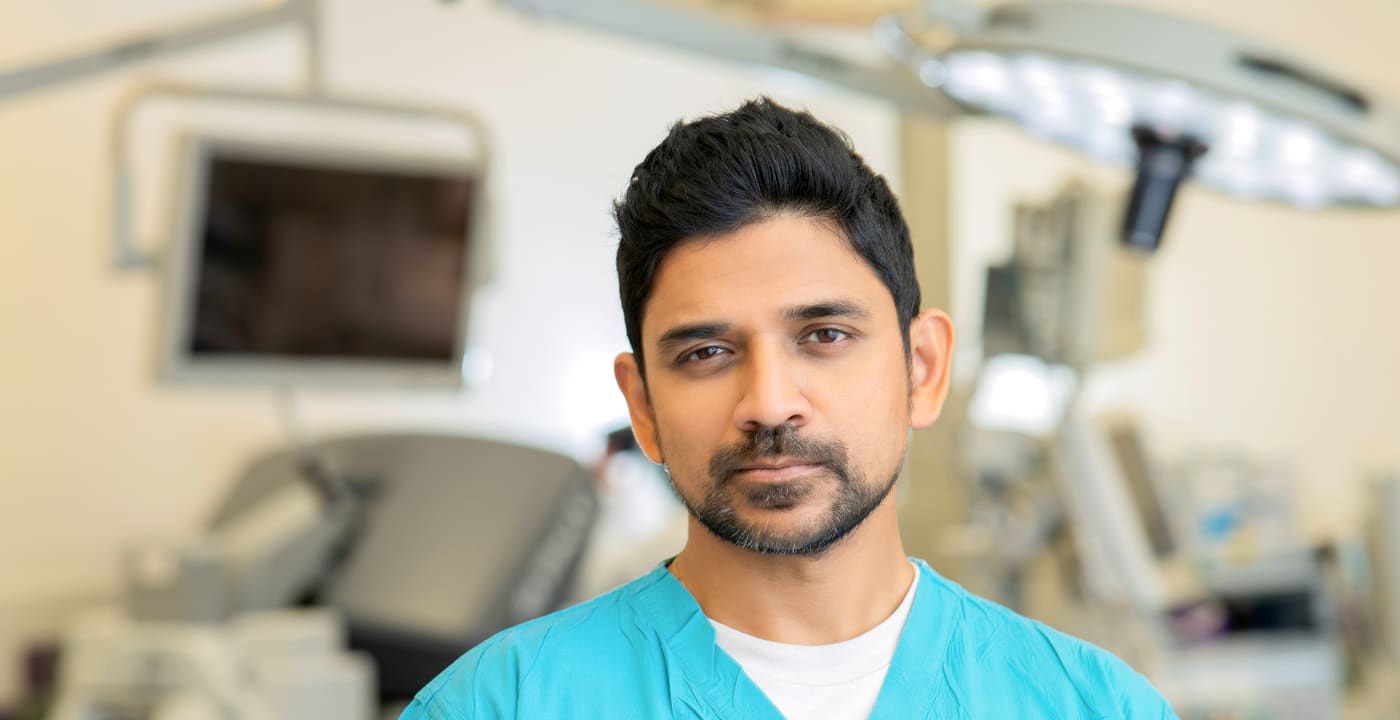What to know about stomach cancer

Although stomach cancer is one of the top causes of cancer deaths in parts of the world, like Asia and in developing countries, the occurrence of gastric, or stomach cancer, has decreased in the U.S. over the last several decades. That’s good news.
“Even thirty years ago, gastric cancer was much more prevalent,” says Prakash Gatta, MD. Gastrointestinal refers to the body’s organs related to digestion, such as the esophagus, stomach and intestines.
“What we have figured out more recently is that one of the cancer-causing culprits is a bacteria called H pylori. The chronic inflammation of infected stomach cells can eventually turn cancerous,” explains Dr. Gatta. Treating the H pylori infection with antibiotics has helped reduce the rate of stomach cancer, although Dr. Gatta is quick to point out that it is still the sixth leading cause of cancer deaths.
That’s the glum news. With most patients’ vague or indistinct symptoms, stomach cancer is not easily detected or diagnosed.
Insufficient stomach cancer screening can mean delayed diagnosis
While a common screening tool like colonoscopy is a preventable measure to combat colon cancer, there is no standard screening mechanism to detect stomach cancer, which can then progress unchecked.
Working with his gastroenterologist partners, Dr. Gatta diagnoses stomach cancer with a procedure called an upper endoscopy. He inserts a tiny tube called an endoscope down the throat to examine the cells lining the esophagus and stomach. If he sees any abnormal tissue cells, he removes a sample through the endoscope to send to a lab to determine if the cells are cancerous.
According to Dr. Gatta, the lack of routine stomach cancer screening means that he often doesn’t see patients until their cancer has advanced beyond the early, more curable stage. “Like other malignancies, stomach cancer is generally more treatable when detected before cancer has spread,” he noted.
Surgery is only an option for about half of stomach cancer cases. Other therapies, such as radiation and chemotherapy, focus on improving and lengthening a patient’s quality of life.
Raising stomach cancer awareness: Know the signs
Dr. Gatta stresses that while the symptoms are commonly associated with many other conditions that are mostly far less serious than stomach cancer, it is vital for patients to follow up with a doctor if the following symptoms persist or get worse:
- Change in bowel patterns
- Bleeding in stools
- Pain or discomfort after eating
- Feeling full quickly
- Difficulty eating or swallowing
- Unexplained weight loss
- Fatigue
“More research is needed to identify better ways of catching stomach cancer earlier,” affirms Dr. Gatta. “But as treating physicians, we also know that better outcomes need more education around the symptoms of stomach cancer and when patients should consult a doctor.”



